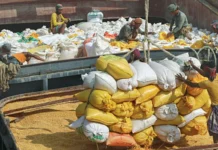By Aparupa Bhattacherjee
A Memorandum of Understanding (MoU) on manpower export was signed between the government of Bangladesh and Malaysia in November 2012. Malaysia has announced the recruitment of Bangladeshi workers from January 2013. What are the terms agreed upon through this MoU? Why is an agreement on manpower export essential for both countries?
Terms Of The MoU
According to the agreement signed, plantation workers will be recruited first, followed by workers for other sectors. Interested applicants keen on working in Malaysia have to register themselves. There will be no role of middlemen and workers will be allowed tenure of up to five years. The minimum wage will be 900 Malaysian Ringgit, which is equivalent to 25,000 Bangladeshi Taka.
Why Was The MoU Necessary?
The UN estimates that nearly 50 to 150 Bangladeshis travel to Malaysia every week by paying traffickers operating the illegal sea routes. The MoU signed is a naïve step taken towards stopping illegal migration. Moreover, the applicant worker can evade the involvement of traffickers or dishonest manpower agents who play a major role in the process. The agreement will put a stop to the harassment and exploitation of Bangladeshi immigrants working in Malaysia. It is a low cost affair allowing many such people from poor households and backward regions to avail the opportunity to work in Malaysia’s labour market. Before the signing of the MoU, the recruitment of such Bangladeshi workers was an expensive procedure. The hiring process, which is based on government-to-government arrangements, would also provide a better mechanism of recruitment in comparison to those going through agencies and middlemen. The MoU has strengthened the already existing strong bond between Bangladesh and Malaysia.
Implications Of The MoU For Bangladesh And Malaysia
The MoU signed is in fact a blessing for the Bangladeshi government, as the country is heavily dependent on remittances by expatriate Bangladeshis. In fact, after the garment industry, remittances are the second largest foreign exchange earner for Bangladesh. The three countries most Bangladeshi workers migrate to are Saudi Arabia, the United Arab Emirates and Malaysia. However, since 2007, Saudi Arabia has stopped hiring manpower from Bangladesh; recently, even the United Arab Emirates has stopped issuing fresh visas to Bangladeshi workers. Against the backdrop of this substantial decline in manpower export to key Arabian countries, the signing of this MoU with Malaysia is critical for Bangladesh. Bangladeshi workers often encounter discrimination and face the humiliation of being termed unruly and prone to getting involved in criminal activities. The social stigma Malaysian society associate with these workers may be done away through this government-to-government arrangement. Former policies of the Bangladesh government used to restrict labour migration of women, as they were more prone to exploitation. The majority of migrants, therefore, were male workers leading to a gender imbalance. In this regard, the security assured by the MoU might also encourage female migrants to travel to Malaysia for work.
Malaysia boasts of a newly industrialised market economy, which is growing rapidly. Due to rapid development, most educated Malaysians are shifting towards service sectors that promise a better standard of living. As a result, there is greater demand for foreign workers to fill gaps in the labour-intense markets of palm oil, construction, domestic help, and other such sectors that Malaysians are generally not involved in. There has always been an influx of migrants into Malaysia, mostly from neighbouring countries such as Indonesia, the Philippines, and Bangladesh, in search of jobs. Recently, Indonesian and Filipino workers, who are provided training by their governments, have become costly compared to their Bangladeshi counterparts. Thus, the need for cheap labour in the different sectors of the Malaysian economy is expected to be met by Bangladeshi workers arriving under the recent agreement reached by the signing of the MoU.
At this juncture, however, two pertinent questions arise. First, will the signing of this MoU help in successfully curbing the illegal migration of thousands of Bangladeshis? Second, will it effectively end the harassment and exploitation migrant workers are subjected to? The answers to these questions can be positive if productive steps are taken on behalf of both the governments involved. Strict patrolling of the maritime region will deter the migrants to take advantage of the illegal sea routes. Night-time patrolling by the Bangladesh Border Security Force in areas prone to illegal migration can restrain such activities. Bangladeshi workers are prone to exploitation due to the absence of proper legislations that protect their rights on behalf of both the exporting country and receiving country. Moreover language sometimes poses a huge barrier for these migrant workers. So, the Bangladesh government will be providing their migrant workers with language and culture training of the receiving country. Thus, the success of the MoU depends on the initiative taken both by the Malaysian and Bangladeshi governments for the betterment of their citizens.
Source: Eurasia Review









